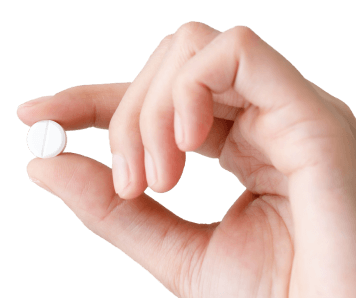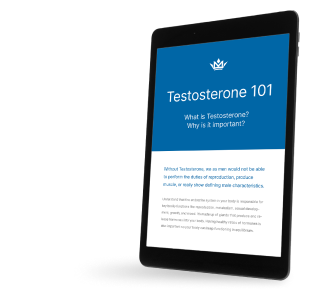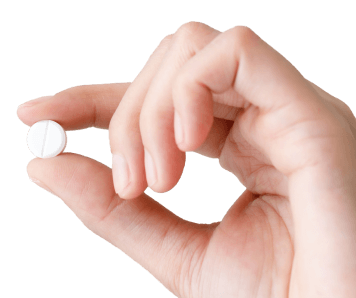Key takeaways:
- Male sexual dysfunction can happen in different stages of the body’s sexual response, from initial desire, to arousal, to reaching orgasm.
- Two of the most common types of sexual dysfunction in men are early ejaculation and erectile dysfunction.
- If you think you might have sexual dysfunction, visit a doctor for a full assessment. They will likely do a physical exam, run tests, and talk to you about your sexual history as well as your lifestyle.
If you’re having issues in the bedroom, like problems getting or maintaining an erection, difficulty reaching orgasm, pain related to sex, and lack of libido, you could be experiencing a health disorder called sexual dysfunction.
Prevalence rates of male sexual dysfunction vary from one study to the next, but some research shows that more than 30% of men deal with some form of sexual dysfunction.
But if you find yourself with occasional erectile dysfunction, or don’t think about sex as often as you used to a decade ago, does that mean you have sexual dysfunction?
Not necessarily…
According to scientific literature, these issues are classified as sexual dysfunction if you have been experiencing them for at least six months and they happen most of the time or all of the time.
The Diagnostic and Statistical Manual of Mental Disorders ( DSM-5) manual offers standardized criteria for classifying this and other health issues.
This definition from the American Psychiatric Association (APA) of sexual dysfunction is “a clinically significant disturbance in a person’s ability to respond sexually or to experience sexual pleasure.”
We get it. Experiencing any kind of sexual problems, as well as looking for solutions, can be stressful and cause feelings of distress in you or your relationship.
In this article you’ll learn more about the common symptoms of sexual dysfunction in men, potential causes of sexual dysfunction, types of sexual dysfunction, and what to do if you think you have issues with sexual dysfunction.
Male sexual dysfunction symptoms
Sexual dysfunction in men can be a health problem on its own or a symptom of something else, like a poorly managed disease. If you have a sexual disorder or sexual disturbance that is contributing to sexual dysfunction, you might experience signs and symptoms like the following:
Premature ejaculation (PE): This is when one climaxes faster than he desires, usually soon after penetration.
Delayed ejaculation: This condition is when it takes a lot of sexual arousal and stimulation to reach orgasm and a long time for semen to be released from the penis.
Erectile dysfunction (ED): If you’re noticing the inability to get an erection or maintain one for a desired length of time, you could have ED.
Orgasmic dysfunction: A delayed or absent orgasm, also called anorgasmia, is when someone has issues reaching orgasm even with enough stimulation. It could take a long time to reach orgasm or you might not climax at all.
Low sexual desire: You might have a low libido if you’re not thinking about sex as often, and you don’t have any drive to have sex with or without a partner.
Painful ejaculation or pain during intercourse: Symptoms of dyspareunia, aka pain during sex, include pain during an erection or during thrusting, burning sensations during sex, and feelings of muscle spasms and tightness.
This is another indicator that you could have sexual dysfunction or another condition that needs to be addressed with a medical professional.
Types of male sexual dysfunction:
Sexual dysfunction types in men include a range of possible issues, including low sexual desire, painful intercourse, and problems with ejaculation and arousal.
Here are the common types of sexual dysfunction you should know about as well as some estimates around how many men these issues impact.
- Sexual interest or sexual desire disorders: Male hypoactive sexual desire disorder (HSDD) is when a man consistently lacks sexual desire and it’s causing distress for him or his partnership.
- Sexual pain:Another name for painful intercourse is dyspareunia. It can involve pain that happens before sex, during intercourse, or afterward. It can be due to penile disorders in men, as well as penis deformities, damage to foreskin, painful erections, or a sexually transmitted infection. Sexual pain disorders affect less than 5% of men, according to research on sexual dysfunction.
- Orgasmic disorders: This includes things like premature ejaculation and delayed ejaculation.
- Sexual arousal disorders:This includes problems like erectile dysfunction (ED) and tends to be more common in older men. That said, ED is fairly common in men of all ages and thought to affect up to 30 million men in the United States.
Male sexual dysfunction causes
So what’s the main cause of erectile dysfunction in men? The truth is, sexual dysfunction can occur for several reasons.
Age plays a role, as does one’s physical health, hormones, medications, mental health, and physiological issues.
Studies show that men who receive diagnoses of sexual dysfunction are more likely to be over age 65, but it can happen at any age.
Remember, a one-time case of impotence shouldn’t leave you wondering if you have this health issue.
If you’re following the clinical terminology, you likely have sexual dysfunction if it’s happening three-quarters of the time that you have sex and it’s been going on for six months.
That being said, you might not want to wait six months to talk to a doctor in case something more serious is going on with your health or, you are ready to remedy the issue, fast.
Going for a thorough evaluation with your doctor can indicate whether you have sexual dysfunction, what’s causing the sexual dysfunction, and address potential solutions for male sexual dysfunction.
Here are some potential causes of sexual dysfunction to talk to your doctor about.
Erectile dysfunction
This could be due to causes like low testosterone, health problems, or injuries to the penis.
Desire disorders
Male hypoactive sexual desire disorder needs to be an ongoing issue for six months to be diagnosed.
Testosterone deficiency
A doctor will run lab tests that can tell if you have low testosterone and if it might be related to the sexual dysfunction you’re experiencing or if there are multiple contributors at play.
Medications:
That Rx your health professional prescribed could be the reason you’re experiencing sexual dysfunction symptoms. Common drugs include antidepressants, testosterone blockers, high blood pressure medication, opioids, and diuretics.
Medical conditions: Men with diabetes, men with hypertension, or men with heart disease may have higher instances of erectile dysfunction.
Lifestyle and habits: Men who are heavy drinkers, are smokers, do recreational drugs, and have poor eating and activity habits may be at increased risk for sexual dysfunction.
If you’re concerned about sexual dysfunction, it’s important to see a doctor. If you’re interested in exploring Maximus’ Blood Flow Protocol, EP Protocol, or Oral TRT+ Protocol, get in touch to schedule a consultation with one of our doctors.
Disclaimer: The contents of this article, including, but not limited to, text, graphics, images, and other information, is for information purposes only and does not constitute medical advice. The information contained herein is not a substitute for and should never be relied upon for professional medical advice. The content is not meant to be complete or exhaustive or to be applicable to any specific individual's medical condition. You should consult a licensed healthcare professional before starting any health protocol and seek the advice of your physician or other medical professional if you have questions or concerns about a medical condition. Always talk to your doctor about the risks and benefits of any treatment. Never disregard or delay seeking professional medical advice or treatment because of something you have read on this site. Maximus does not recommend, endorse, or make any representation about the efficacy, appropriateness, or suitability of any specific test, products, procedures, treatments, services, opinions, healthcare providers or other information contained herein. Maximus is not responsible for, nor will they bear any liability for, the content provided herein or any actions or outcomes resulting from or related to its use.








